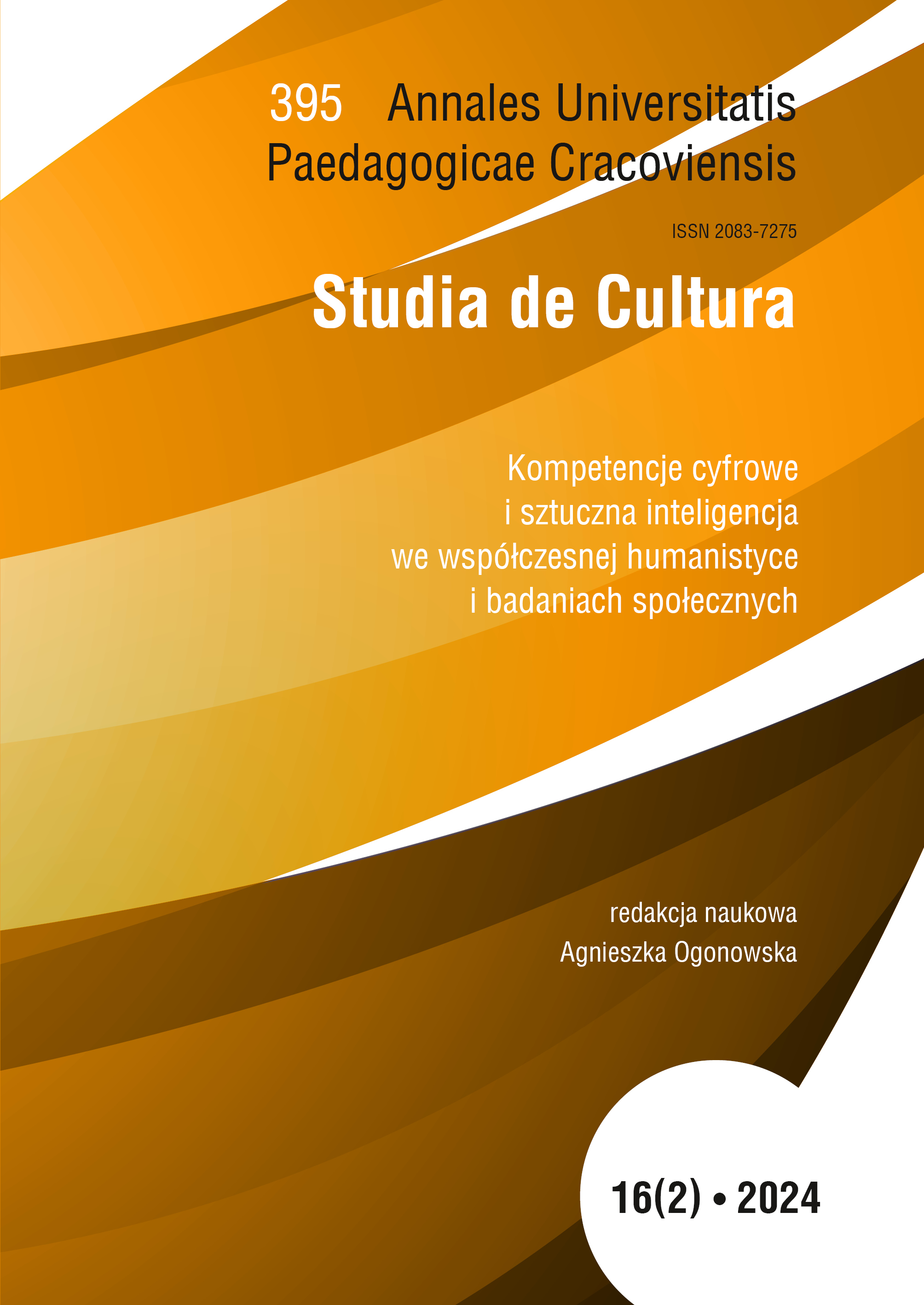Abstract
The text attempts to define linguistic artificial intelligence in the context of GPT-4 chat linguistic algorithms. The experiments carried out and described refer to the description of the chat functionality as highly intelligent in terms of language in terms of correctness, efficiency and linguistic culture. By referring to Gardners understanding of linguistic intelligence, and his critics, the ability of artificial intelligence to use a standardized language is described, and errors in the data and the process of coding language models in GPT-4 chat are marked.
References
Biedroń Adriana. 2017. „Zdolności językowe i inteligencja w nauce języka obcego – teoria naukowa a praktyka dydaktyczna”. Neofilolog 3. 29–40.
View in Google Scholar
Carroll John B. 1993. Human cognitive abilities: A survey of factor‑analytic studies. New York.
View in Google Scholar
Dale Robert. 2021. „GPT-3 What’s it good for?”. Natural Language Engineering 27(1). 113–118. https://doi.org/10.1017/S1351324920000601.
View in Google Scholar
Gajda Janusz. 2007. Język mediów jako system komunikacji i jego kulturowe uwarunkowania. W: Maciej Tanaś (red.). Kultura i język mediów. Kraków. 15–26.
View in Google Scholar
Gardner Howard. 2002. Inteligencje wielorakie. Teoria w praktyce. Poznań.
View in Google Scholar
Gardner Howard. 2006. Inteligencje wielorakie. Nowe horyzonty w teorii i praktyce. Warszawa.
View in Google Scholar
Gottfredson Linda S. 2004. Social Consequences of Group Differences in Cognitive Ability. https://www1.udel.edu/educ/gottfredson/reprints/2004socialconsequences.pdf [dostęp: 3.06.2024].
View in Google Scholar
Haque Mubin Ul, Dharmadasa Isuru, Sworna Zarrin Tasnim, Rajapakse Roshan Namal, Ahmad Hussain. 2022. I think this is the most disruptive technology: Exploring Sentiments of ChatGPT Early Adopters using Twitter Data. arXiv. https://doi.org/10.48550/arXiv.2212.05856.
View in Google Scholar
Kołodziejski Maciej. 2009. Inteligencje wielorakie w praktyce edukacyjnej. Kierunki poszukiwań i możliwości wykorzystania. W: Jan Grzesiak (red.). Ewaluacja i innowacje w edukacji. Samoocena i ocena w kształceniu i wychowaniu. Kalisz–Konin. 365–372.
View in Google Scholar
Loewe Iwona (red.). 2023. Encyklopedia mediolingwistyki. Kraków.
View in Google Scholar
Lund Brady D., Ting Wang, Nishith Reddy Manuru, Bing Nie, Somipam R. Shimray, Ziang Wang. 2023. „ChatGPT and a new academic reality: Artificial Intelligence‑written research papers and the ethics of the large language models in scholarly publishing”. Journal of the Association for Information Science and Technology 74. 570–581. https://doi.org/10.1002/asi.24750.
View in Google Scholar
Markowski Andrzej. 2018. Kultura języka polskiego. Teoria. Zagadnienia leksykalne. Warszawa.
View in Google Scholar
Sagan‑Bielawa Mirosława. 2017. „Polszczyzna inteligencji jako (nieistniejący) model zachowania językowego”. Poradnik Językowy 10(749). 9–19.
View in Google Scholar
Shahriar Sakib, Hayawi Kadhim. 2023. „Let’s have a chat! A Conversation with ChatGPT: Technology, Applications, and Limitations”. arXiv 2(1). https://doi.org/10.48550/arXiv.2302.13817.
View in Google Scholar
Skrowronek Bogusław. 2013. Mediolingwistyka. Wprowadzenie. Kraków.
View in Google Scholar
Skrowronek Bogusław. 2024. Mediolingwistyka. Dekadę później. Kraków.
View in Google Scholar
Ślawska Magdalena. 2019. Perspektywa genologiczna w badaniu tekstów prasowych/medialnych. W: Iwona Hofman, Danuta Kępa‑Figura (red.). Współczesne media. Problemy i metody badań nad mediami. Tom 2. Lublin. 221–234.
View in Google Scholar
Visser Beth A., Ashton Michael C., Vernon Philip A. 2006. „g and the Measurement of Multiple Intelli‑gences: A response to Gardner”. Intelligence 34(5). 507–510.
View in Google Scholar
White John. 2008. „Illusory intelligences?”. Journal of Philosophy of Education 42(3–4). 611–630.
View in Google Scholar
Willingham Daniel T. 2004. „Reframing the Mind”. Education Next 4(3). 19–24.
View in Google Scholar

This work is licensed under a Creative Commons Attribution-NonCommercial 4.0 International License.
Copyright (c) 2024 Annales Universitatis Paedagogicae Cracoviensis. Studia de Cultura

